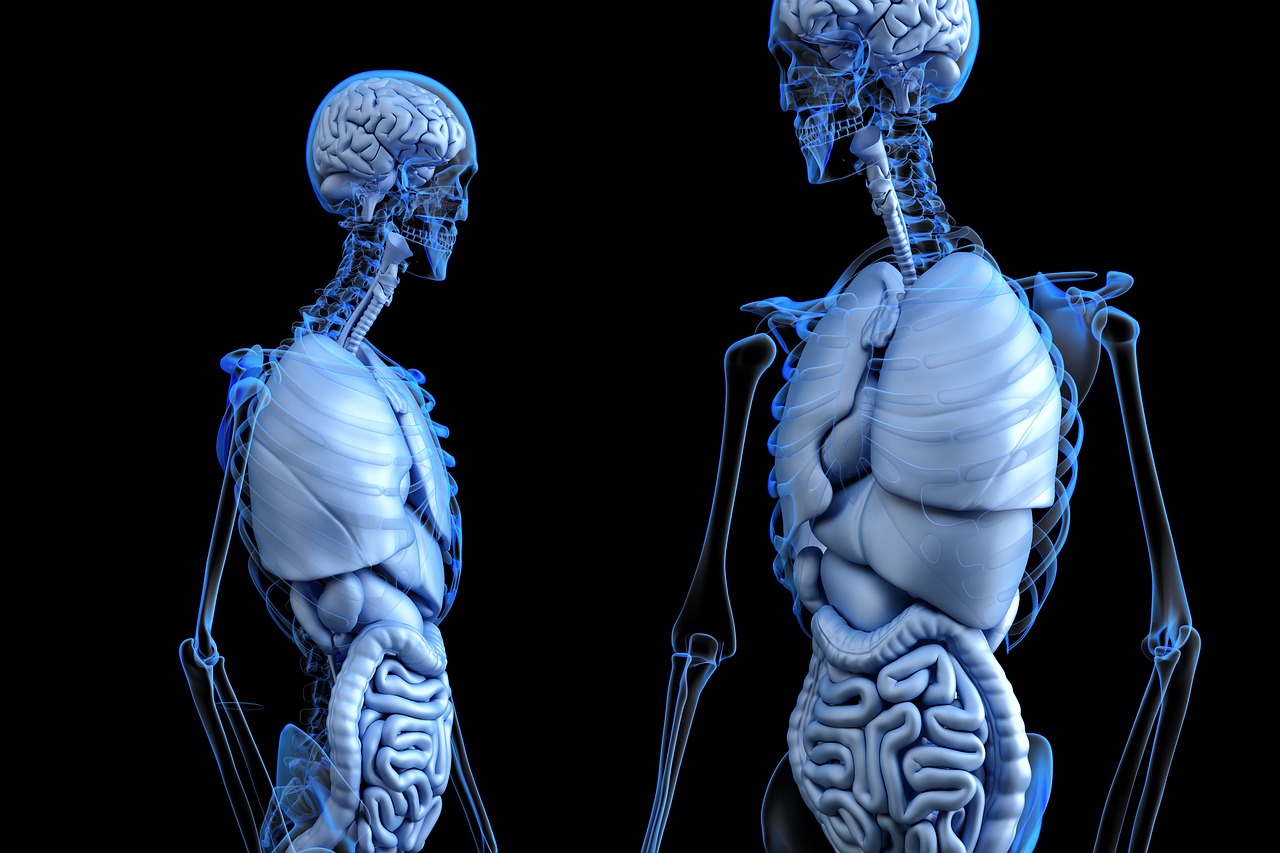Playing with balloons helped me re-discover much more slow, fluid and graceful movement. I believe that this type of controlled movement exercise could be very beneficial - even more so than playing with balls.
Read MoreLight Therapy and Parkinson's Disease
The purposes of this article, which I will endeavour to keep updated, is to act as a central resource of information on light therapy and its applications to Parkinson's Disease.
Read MoreThe Divided Brain and Parkinson's Disease, Part 2
In this sequel, we examine more closely the issues that an imbalanced brain function causes, in particular when the left brain is overly dominant, and show that there are strong correlations with the major motor and non-motor symptoms and real lives of people with Parkinson’s Disease. We will also explore links to Dorsal Vagus Nerve mediated immobilization.
Read MoreThe Dorsal Vagus Nerve and Parkinson's Disease
In this article, I would like to return to this topic, and concentrate this time on that primitive, reptilian branch of the Vagus Nerve, and its potentially central role in Parkinson's Disease.
Read MoreBuilding Aliveness with Parkinson's Disease
The contrast to two years ago is quite stark. Back then I was literally near-Death and dying fast. Then, in my Death Feigning or "off" state, I would be in a much deeper Freeze, with more "rigor mortis" (rigidity). I was literally a zombie. Now I am much more functional - half-alive instead of near-dead - while symptomatic, unless having a really bad day. Even when the drugs switched me on, back then, it was not into full Aliveness, but into another half-dead, unfeeling, empty state - that of permanent Fight-Flight which I had pre-existed all in my life. Moreover, I was taking so many drugs that my movement (and emotions) were uncontrolled, I would go over to a state of dyskinesia which could be worse than the symptoms. Some of the drugs (ropenirole) I was on then actually made my Fight-Flight much, much worse than before.
Read MoreDiminished Aliveness and Parkinson's Disease
Perhaps it would be instructive at this point, therefore to describe more about what its like when I am very symptomatic, to help understanding of why I believe this disease truly corresponds to Death Feigning, and why the converse - increase Aliveness - is the key route to healing. In Death Feigning, not only movement is switched off, but as are all signals through which the keen sense of predators might detect some vestigial signs of life. To me, this describes exactly how it is when I am symptomatic - if I don't implement strategies to combat this state and just allow it to take over - and the more symptomatic I am, the more pronounced these experiences:
Read MoreDevelopmental and Shock Trauma and Parkinson's Disease
As for many people with young onset forms of Parkinson's Disease, my diagnosis was given the label "Idiopathic". This term, Idiopathic, is used to denote any disease or condition which arises spontaneously or for which the cause is unknown. This diagnosis was wholly unsatisfactory to me, as I'm a person who needs to know the "why" of things.
Read MoreTennis as Therapy for Parkinson's Disease
Tennis seems to be the perfect exercise to help PD - the hand-eye coordination, sudden quick movements, the thinking process used to execute a shot. I now play most days - mainly doubles - for up to three hours. Luckily, our club has a lot of members so there’s never a shortage of people to play with. And the strange, but rewarding part is that my game is getting better! Four years ago I would never have dreamt that I would be winning club competitions and playing matches for my club in the Leicestershire league. I started playing tennis shortly before being diagnosed in my early 50s, enjoying coaching sessions and playing a couple of times a week with my children.
Read MoreDopamine, Aldehyde Poisoning and Parkinson's Disease
It is likely that multi-factorial aldehyde "insults" or contributions are at work in any one case of onset of dopamine deficiency and its rate of progression. Each person will have a different combination of contributions to the aldehyde overwhelm which result in the dopamine deficiency, and everyone will have a different "final straw that broke the camels back". This is why so many difference potential "causes" of PD have been identified in the scientific literature, but why no single universal cause has been found true for everyone. It is also why there is no one universal supplement, drug, diet or therapy which is beneficial for all people with PD, and why every one of us has a very different response to these.
Read MoreNeural Exercises and Parkinson's Disease
This article explores how I've found that persistent and targeted "neural exercises" can progressively reduce various symptoms/problems of Parkinson's Disease, through neuroplastic processes. In particular, here I will demonstrate specific neural exercises, and how I have significantly improved my own quality of life through pursuing these persistently over time, via entries from my video diary which are interspersed through the article.
Read MoreLoneliness, Social Isolation, Estrangement and Parkinson's Disease
"The single biggest predictor of rate of Parkinson's progression is if you answer true to 'are you lonely'?" This finding by Dr Laurie Mischley, who monitors the progress of symptoms of more than 1500 people with Parkinson's Disease is perhaps one the most tragic aspects of the disease in our modern society, in which we people with PD may find ourselves heading toward this outcome by default. Indeed, I have lost count of the number of people with PD who have said something to me along the lines of "my friends and family have abandoned me/don't visit/lost touch". The negative feedback loops between loneliness and disease progression can be one of the most vicious circles of PD. I speak from personal experience also, because at my lowest point, I too had become very isolated, virtually alone in the house and barely going out.
Read MoreYoga and Parkinson's Disease
A consideration of what I’ve learned from my teachers (Achayras). So much I could talk about! Hope, purpose, a sense of letting go. An altogether holistic/total yoga approach. The overall learning message I've taken from my teachers is that it is this combination and integration of approaches which is most effective: nutrition, hydration, movement and emotional well being.
Read MorePulsed Electromagnetic Field Therapy for Parkinson's Disease
In this article, we explore a technology which has proven helpful for people with PD, and may work by helping to modulate or quieten these abnormal brainwave patterns.
Read MoreBusy, Anxious Thoughts and Parkinson's Disease
Many people with PD (PwP), and caregivers will also be well aware of this, often encounter an almost constant chatter of busy thoughts in their own heads. This inner voice can speak in undertones of self-doubt and guilt, but also can be constantly seeking to blame others, marshalling arguments and self-justifications. These thoughts can go round and round like a tape stuck on a loop, and be very difficult to break out of. Indeed, PwP can become irritable when someone seeks to interrupt these thoughts. These anecdotal experiences have now been backed by science too. A recent article in "Nature",
Read MoreDiet and Nutrition in Parkinson's Disease
Over recent years, it has become very clear that there are a number of things which people with Parkinson's Disease (PwP) can proactively do, or not do, to mitigate their symptoms. Likewise, there are many lifestyle choices which are now known to aggravate and worsen the symptoms on a day-to-day basis. Longer term, these choices have been shown to either slow or increase the rate of progression. The evidence has come both from the science base and from the statistically relevant, aggregated shared real life experiences of people affected by PD around the world, via social media.
Read MoreProgressive Reduction in Symptoms of Parkinson's Disease
The purpose of this article is to review the outcomes from employing the pragmatic solutions, covered on this website, for working towards progressive symptom reduction of Parkinson's Disease. In particular, I discuss the outcomes of the persistent practical applications on myself, and demonstrate the improvement through the records of my Video Diary.
Read MoreMirroring and Rehearsal Therapies for Parkinson's Disease
Movement in humans is a learned behaviour. We learn to move mainly by watching other people go through the motions: we are not born with any innate ability to move around independently. As babies and toddlers, we spend years watching and mimicking our parents, programming our brains with the data they provide. Our brain knows all about walking before we even attempt to walk ourselves, through unconscious observation. Later, we start to get the hang of it through intensive practice, and especially by falling down and making mistakes. Encouragement and supportive instruction from adults help us to keep practising until we have, at last, developed the ability to move independently. But imagine, if as we started to trying to walk, when we fell over on the second attempt, our parents said "oh dear, walking is not for you"! Unfortunately, this is precisely the message people with PD tend to be given.
Read MoreHands, Fingers and Parkinson's Disease
I have done a lot of hand/finger stimulation and experimented to optimize such exercises, in the spirit of Curiosity and Play. I've personally found significant benefit in pursuing this line of research. Indeed, I have managed to recover a lot of my independence and quality of life through hand and finger therapy, and I know just how much of a major part it has played in my own progressive symptom reduction.
Read MoreSocial Engagement and Parkinson's Disease
Recently, I described how the "Polyvagal Theory" of Dr Stephen Porges not only provides an elegant explanation for Parkinson's Disease and all its symptoms, but also suggests the actions we can take towards healing. Here, we return to this Nervous System (NS) dysfunction perspective of PD, and explore further how it informs us about what we can do to progressively decrease our symptoms.
Read MoreSelf-Doubt, Guilt, Inner Voices and Parkinson's Disease
While most people will be familiar with the external, physically manifest symptoms of PD, very few have a good grasp of these internal, hidden states, and so don't realize that people with Parkinson's (PwP) are also frozen, rigid and trembling on the inside too. Having engaged with very many PwP around the world, I've learned that there are common personality types, and we tend to have shared, overarching themes of internal emotional states. In particular, I've found that many of us can be described as high achievers, but are wracked with self-doubt and guilt on the inside. This finding appears to especially true in the cohort of PwP who eventually end up with a rigidity dominant form of Early Onset Parkinson's Disease.
Read More


















